Response to a Letter From A Freemason – By Most Rev. Joseph Osei-Bonsu Emeritus Bishop of Konongo-Mampong
Mr. John Edusei
Assistant Provincial Grand Master North
Grand Lodge of Ghana
Dear Mr. John Edusei,
May the grace and peace of Christ be with you!
I write in response to the letter that you wrote as a rejoinder to the statement issued by the Metropolitan Archbishop of Accra, Most Rev. John Bonaventure Kwofie, CSSp. In his statement, Most Rev. John Bonaventure Kwofie made it clear that one cannot be a Catholic and be a Freemason at the same time. I would like to comment on a few of the points that you raised in your rejoinder.
(1)
In your letter you stated, “One of the key misunderstandings in your statement is the portrayal of Freemasonry as a quasi-religious system that undermines the unique role of Jesus Christ and the Church. Freemasonry is not a religion; it is a fraternity that promotes moral development, community service, and the pursuit of truth”. In connection with this assertion of yours, I am going to quote from three authorities on Freemasonry who say that Freemasonry is a religion. The first one is Albert G. Mackey (1807-1881). He is one of the three foremost authorities of Freemasonry in the United States. Mackey gave Freemasonry a library of basic books, including his Encyclopedia of Freemasonry, The Symbolism of Freemasonry, Mackey’s Masonic Ritualist, Lexicon of Freemasonry and Text Book of Masonic Jurisprudence. The other two authorities are Albert Pike and Henry Wilson Coil. Pike (1801-1891) remodelled the entire structure of the Scottish Rite and served as Sovereign Grand Commander of the Southern Jurisdiction from 1859 until his death. Coil (1885-1974) edited the massive Coil’s Masonic Encyclopedia, which was published in 1961. No other American Masons have had more influence and prestige than this trio. What these three say about Freemasonry being a religion must be considered authoritative. According to Albert G.Mackey,
Although Freemasonry is not a dogmatic theology, and is tolerant in the admission of men of every religious faith, it would be wrong to suppose it is without a creed. On the contrary, it has a creed, the assent to which it rigidly enforces, and the denial of which is absolutely incompatible with membership in the Order. This creed consists of two articles: First, a belief in God, the Creator of all things, who is therefore recognized as the Grand Architect of the Universe; and secondly, a belief in the eternal life, to which this present life is but a preparatory and probationary state. [1]
Freemasonry goes beyond promoting the common good and moves into the realm of religion and soteriology. It claims that the practice of its principles will help a Mason to advance in his spirituality and get to heaven: “By the practice of Freemasonry, its members may advance their spirituality, and mount by the theological ladder from the Lodge on earth to the Lodge in heaven”.[2]
The Lodge even claims that it is a “divinely appointed institution”,[3] and that “no institution was ever raised on a better principle, or more solid foundation”.[4] Freemasonry sees itself as a completely self-sufficient system of religious and moral teaching whose members need nothing else to be spiritually edified, either in this life or the life to come: “These three degrees (lst, 2nd, 3rd) thus form a perfect and harmonious whole, nor can it be conceived that anything can be suggested more, which the soul of man requires”.[5]
Moreover, Masonic writers, such as Pike[6] and Mackey,[7] have acknowledged that Freemasonry has all the attributes of a religion: temples, altars, prayers, a moral code, worship, vestments, feast days, the promise of reward or punishment in an after-life (“the Grand Lodge above”) and a hierarchy. Mackey has no doubt in his mind that Freemasonry is a religion:
Look at its ancient landmarks, its sublime ceremonies, its profound symbols and allegories – all inculcating religious observance, and teaching religious truth, and who can deny that it is eminently a religious institution? … Masonry, then, is indeed a religious institution; and on this ground mainly, if not alone, should the religious Mason defend it.[8]
Coil expresses a similar sentiment about Freemasonry:
Does Freemasonry continually teach and insist upon a creed, tenet, and dogma? Does it have meetings characterized by the practice of rites and ceremonies in and by which its creed, tenet, and dogma are illustrated by myths, symbols, and allegories? If Freemasonry were not a religion, what would have to be done to make it such? Nothing would be necessary or at least nothing but to add more of the same.[9]
If these giants of Freemasonry say that Freemasonry is a religion, who are you, Mr. John Edusei, to contradict them and say that it is only a brotherhood? It is clear from the foregoing that Freemasonry has moved from being merely “a brotherhood” to becoming a religion. It should be noted that in the Catholic Church, there are associations and societies like St. Theresa’s, the Charismatic Renewal, Knights and Ladies of Marshall, Knights and Ladies Auxiliary of St. John International, etc. None of these groups espouse doctrines that are different from those of the Catholic Church. None of them can be described as a religion. This is not the case with Freemasonry.
(2)
In the part of your letter that you entitled “Addressing Doctrinal Concerns”, you state, “As a practicing Catholic, I have never been asked by Freemasonry to renounce or compromise my faith in Christ”. However, there are things that Freemasonry says about Christ that you have not touched on. Freemasonry holds the view of Christ as truth for only some people at a particular time, which is not the teaching of the Catholic Church:
Though Avatars[10] have come to all people at different times with the same essential message, nevertheless the Christian Avatar is still not acceptable to some peoples …. Jesus of Nazareth was sent to be a light to the world to some branches of the human race, but other branches have had, and do now have, their Buddha, their Krishna, their Zoroaster, their Confucius, their Mohammed.[11]
According to Pike, Catholicism was a vital truth in its earliest ages, but it became obsolete, and Protestantism arose, flourished and deteriorated. The doctrines of Zoroaster were the best which the ancient Persians were fitted to receive; those of Confucius were fitted for the Chinese; those of Mohammed for the idolatrous Arabs of his age. Each was Truth for the time.[12]
It is the view of Christianity that Christ came for all humankind and is the source of salvation for all. This is different from Freemasonry which does not see Christ as the source of salvation but places emphasis on personal effort.
Christian Masons are asked to place Christ alongside – not above – other gods. Indeed, the lodge honours Jesus Christ as it honours Socrates, Buddha, and Mohammed. It does not acknowledge any special spiritual claims by Jesus, since this would violate the basis of Freemasonry. At no time is the Christian Mason encouraged to pattern his life after Christ or to cultivate the specifically Christian virtues.
Prayers in Masonic lodges are always directed to the Great Architect of the Universe (and other similar titles). The name of Jesus Christ is deliberately omitted from these prayers. Christian Masons thus argue that they can worship God outside of the church in a manner that would not be allowed inside the church.
Some Masons claim that at the highest echelons of the Masonic Order, Christ is proclaimed as in Christianity. I have not found evidence of this in any Masonic literature. Those Masons who make this claim will do well to provide me with a text that says this.
Another important thing missing in Masonic teaching about Christ is his role in salvation. According to Masonic teaching, fidelity to Masonic principles will enable the Mason to enter the “lodge on high”, i.e., heaven. The Mason attains salvation, not through the passion and death of Jesus Christ, but through the mythical assassination and resurrection of one Hiram Abiff, the central character of an allegory presented to all candidates during the third degree in Freemasonry. Hiram is presented as the chief architect of King Solomon. The whole system of progress from one degree to another is heavy with emphasis on the Mason passing through stages as a result of his own efforts: God’s grace and the salvific death of Christ do not come into it. According to Lynn F. Perkins, Masonry teaches that redemption and salvation are both the power and the responsibility of the individual Mason. Saviours like Hiram Abiff can and do show the way, but men must always follow and demonstrate, each for himself, his power to save himself, to build his own spiritual fabric in his own time and way. Every man in essence is his own saviour and redeemer; for if he does not save himself, he will not be saved.[13]
During their initiation ceremony, the person being initiated must confess that he has long been in darkness, and now seeks to be brought to light. He may have accepted baptism, but to the brothers of the lodge he remains in “darkness”. The Lodge thus views the Christian, who has been reborn into the death and resurrection of Christ through baptism, as being in a spiritually deficient condition. He must die to his former self in Christ and be reborn into the new life of the Lodge. This makes Freemasonry rather like Pelagianism, the 5th century heresy which taught that humanity could achieve perfection through good works. The Entered Apprentice Mason is called a “Rough Ashlar”, meaning a stone taken from the quarry in its rude, natural state. Without any discussion of the stain of original sin or the need for baptism, the Lodge teaches its members that they can, by their own works, become Perfect Ashlars. A Perfect Ashlar symbolizes a state of perfection before God. It is the Mason’s good conduct, independent of God’s gifts of grace and mercy, that is to make him fit for the “house not made with hands, eternal in the heavens”.[14]
(3)
Mr. John Edusei, in your letter you made the following statement: “Freemasonry is not a religion; it is a fraternity that promotes moral development, community service, and the pursuit of truth”. How do you reconcile the “moral development” that you speak of with the Masonic notion of morality which is relativistic? Allen E. Roberts argues in favour of a relativistic and subjective morality: “What is moral to one man may be immoral to another. Each man must decide for himself what the word encompasses, taking into account the moral standards of the society in which he lives … He must set his own standards, his own principles”.[15] Also going against your “moral development” is the fact that Masonic ritual makes no reference to the Ten Commandments. The reason is that they are part of God’s revelation. Therefore, while most Masons would presumably agree on the grave obligations set forth in the Decalogue, Freemasonry’s system of morality must exclude them from its non-sectarian theology.
The Mason is required to swear that he will “keep the secrets of a brother Master Mason inviolate, when communicated to and received by [him] as such, murder and treason excluded”.[16] Edmond Ronayne’s Handbook of Freemasonry instructs Masons: “You must conceal all crimes of your brother Masons … and should you be summoned as a witness against a brother Mason be always sure to shield him …. It may be perjury to do this, it is true, but you’re keeping your obligations”.[17] Thus, Masonry’s system of morality condones bearing false witness against another, which is a violation of the moral law. How do you, Mr. John Edusei, reconcile this with your statement that Freemasonry is a “fraternity that promotes moral development …and the pursuit of truth”?
(4)
In the section of your letter captioned “Receiving Holy Communion” you state, “The declaration that Catholics who are Freemasons are in a state of ‘grave sin’ and may not receive Holy Communion is deeply troubling to me. The Eucharist is not a reward for perfection but a source of grace for those who seek to grow closer to God. Pope Francis has emphasized the Church as ‘a field hospital’ for sinners, not a fortress for the righteous”. In spite of what Pope Francis says in this connection, he still affirms the Church’s teaching stated in the Declaration of 1983. You are probably unaware that Pope Francis endorsed on 13 November 2024, together with Cardinal Victor Fernández, Prefect of the Dicastery of the Faith, a new document on Freemasonry. This document was written in response to a bishop from the Philippines who had expressed concern at the growing number of Catholics in his diocese who are taking part in Freemasonry and asked for suggestions on how to respond pastorally. On the doctrinal level, the document affirms the traditional teaching that “active membership in Freemasonry by a member of the faithful is forbidden because of the irreconcilability between Catholic doctrine and Freemasonry” (cf. Congregation for the Doctrine of the Faith, “Declaration on Masonic Associations” [1983]). It adds, “Therefore, those who are formally and knowingly enrolled in Masonic Lodges and have embraced Masonic principles fall under the provisions in the above-mentioned Declaration”. In other words, the new statement also says that Catholics who are Freemasons are in a state of ‘grave sin’ and may not receive Holy Communion, as taught by the 1983 Declaration. Freemasons like Hon. Alexander Afenyo-Markin and others that you may know need to take note of this and stop pretending that the Church’s teaching on Freemasonry has changed.
Mr. John Edusei, why is this Declaration “troubling” to you? Holy Communion in the Catholic Church is for those members who are in a state of grace and abide by the teachings of the Church. In the matter of Holy Communion, Catholics must abide by the teaching regarding the Jesus whom we receive in the Sacrament of the Eucharist. The Jesus whom Catholics receive in Holy Communion is not the same as the one proclaimed by Freemasonry. He is divine, the second Person of the Trinity, the one through whose death and resurrection we obtain eternal life. As divine and a member of the Trinity, Christ cannot be categorized with other founders of various religions who do not lay any claim to being divine. It is this Jesus, the Saviour of the world, whom we receive in Holy Communion. How can Catholics share Communion with people like Freemasons who believe that salvation does not come from Jesus but from themselves and their personal efforts? Holy Communion is shared by members of the ecclesial family who have the same faith in Christ. Let me quote you something in this connection from the United States Conference of Catholic Bishops (USCCB) which we can make our own in Ghana. By direction of the United States Conference of Catholic Bishops, there is found a statement of guidelines for the reception of Communion in every missalette. In the case of non-Catholic Christians, the guidelines say:
We welcome to this celebration of the Eucharist those Christians who are not fully united with us. It is a consequence of the sad divisions in Christianity that we cannot extend to them a general invitation to receive Communion. Catholics believe that the Eucharist is an action of the celebrating community signifying a oneness of faith, life and worship of the community. Reception of the Eucharist by Christians not fully united with us would imply a oneness which does not yet exist, and for which we all must pray.
In the case of those who are non-Christians, the guidelines say: We also welcome to this celebration those who do not share our faith in Jesus. While we cannot extend to them an invitation to receive Communion, we do invite them to be united with us in prayer.
Mr. John Edusei, if you do not renounce Freemasonry, when you come to the Catholic Church, we cannot extend to you an invitation to receive Holy Communion because as a Freemason you are not a Catholic. You are indeed the practitioner of another religion, which is different from the Christian religion.
(5)
Mr. John Edusei, you state that you are “the Assistant Provincial Grand Master North Grand Lodge of Ghana”. Indeed, you say that you are “a leader within Freemasonry”. I do not know what stage you have reached within Freemasonry, but I would recommend that you read two books by John Salza, a former 32nd Freemason who left Freemasonry and converted to Catholicism. He has written extensively on the incompatibility of Freemasonry with Catholicism. He has written several books on Freemasonry, including Masonry Unmasked: An Insider Reveals the Secrets of the Lodge and Why Catholics Cannot Be Masons. In the latter book, Salza argues that Freemasonry is a false religion that promotes a generic, universal deity, which is incompatible with the Catholic Faith. His critique of Freemasonry is based on his insider knowledge, having been a member of the organization for many years and rising to the 32nd degree in Freemasonry. He contends that Freemasonry’s teachings, rituals, and oaths are in direct conflict with Catholic doctrine and morals. John Salza’s work has been recognized as a valuable resource for Catholics seeking to understand the incompatibility of Freemasonry with their faith. After you have read the two books by John Salza that I have recommended, you will be in a better position to decide to be a Freemason or a Catholic. A “Catholic Freemason” does not exist!
With very best wishes and the assurance of my prayers,
Yours sincerely.
Most Rev. Joseph Osei-Bonsu
Emeritus Bishop of Konongo-Mampong
Mampong-Ashanti,
30 January 2025
[1] Albert G. Mackey, Encyclopedia of Freemasonry, p. 731.
[2] Heirloom Masonic Bible (Master Reference Edition, Wichita, Kan.: DeVore & Sons, 1988), p. 26.
[3] See, for example, Quarterly Bulletin of the Iowa Masonic Library (1917), 54.
[4] Wisconsin Multiple Letter Cipher, 59.
[5] Daniel Sickles, “Ahimon Rezon” or “Freemason’s Guide”, Columbia, S.C.: R.L. Bryan Company, 1965, p. 196.
[6]Pike, Morals and Dogma of the Antient and Accepted Scottish Rite of Freemasonry, Charleston, S.C.: Supreme Council of the Thirty-third Degree for the Southern Jurisdiction of the United States, 1881.
[7] Mackey, Encyclopedia of Freemasonry.
[8] Mackey, Encyclopedia of Freemasonry, p. 619.
[9] Coil, Coil’s Masonic Encyclopedia (New York: Macoy, 1961), p. 512.
[10]Avatar (Sanskrit avatara, “descent”), in Hinduism, descent of a god into the world of human beings for the duration of a human life span.
[11]Lynn F. Perkins, The Meaning of Masonry: A Popular Guide to the Values of Ancient and Modern Freemasonry (Lakemont, Ga.: CSA Press, 1960), pp. 54-55.
[12] Pike, Morals and Dogma, p. 38.
[13]Lynn F. Perkins, The Meaning of Masonry: A Popular Guide to the Values of Ancient and Modern Freemasonry. Lakemont, Va.: Macoy, 1969, p. 95.
[14] Texas, Monitor of the Lodge, p. 19; see also Masonic Bible, p. 35.
[15] Allen E. Roberts, The Craft and Its Symbols: Opening the Door to Masonic Symbolism (Richmond, Va.: Macoy, 1969), p. 43.
[16] Wisconsin Multiple Letter Cipher, 113.
[17] Edmond Ronayne, Ronayne’s Handbook of Freemasonry (Chicago: Edmond Ronayne, 1917; reprint, Whitefish, Mont.: Kessinger Publishing, 1998), p. 183.
This post has already been read 1085 times!
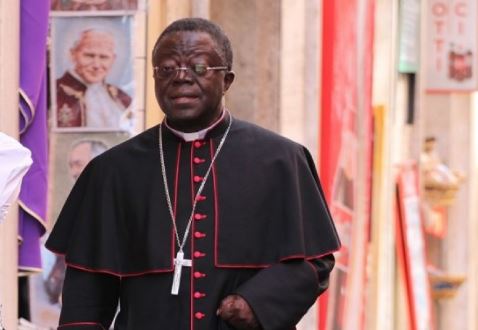
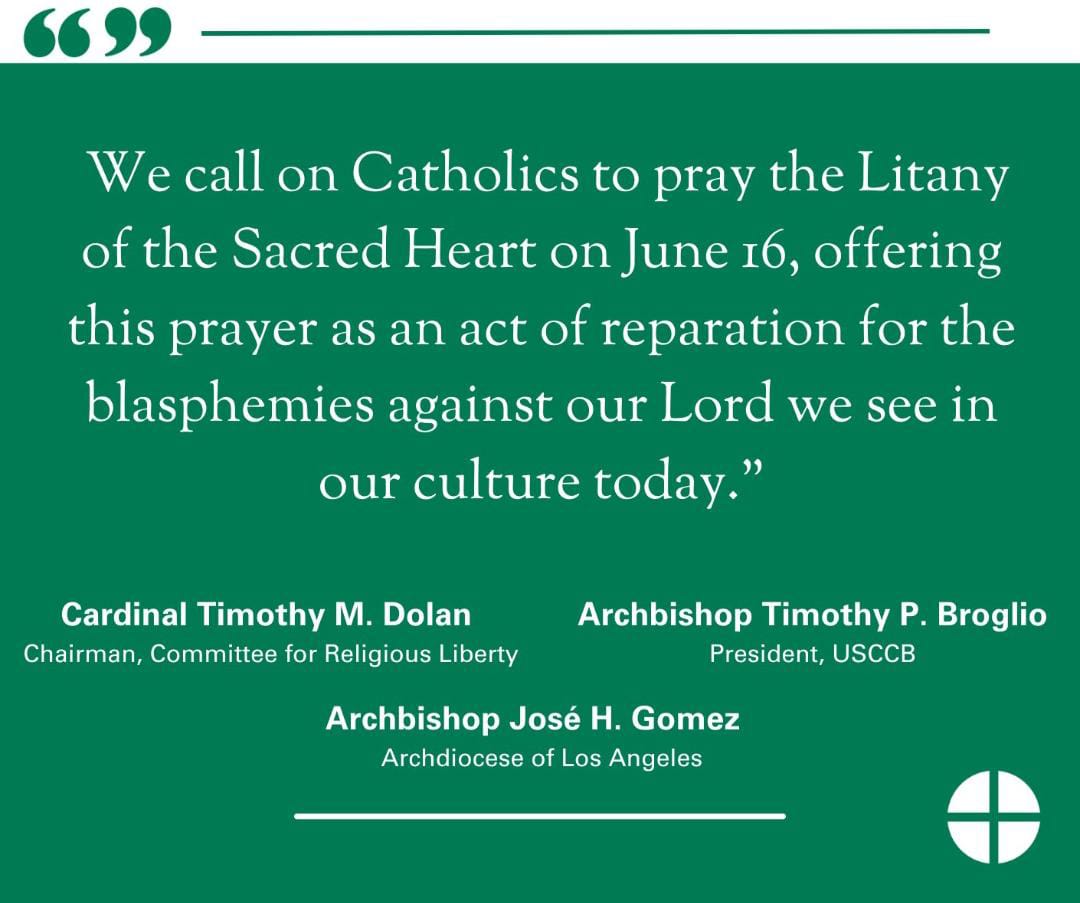

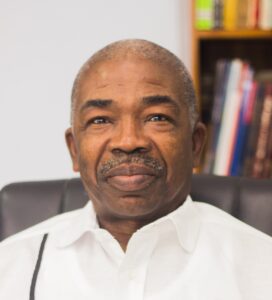
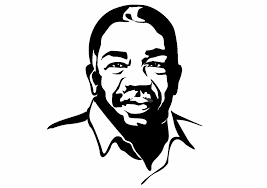
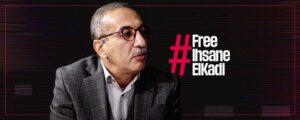
Post Comment